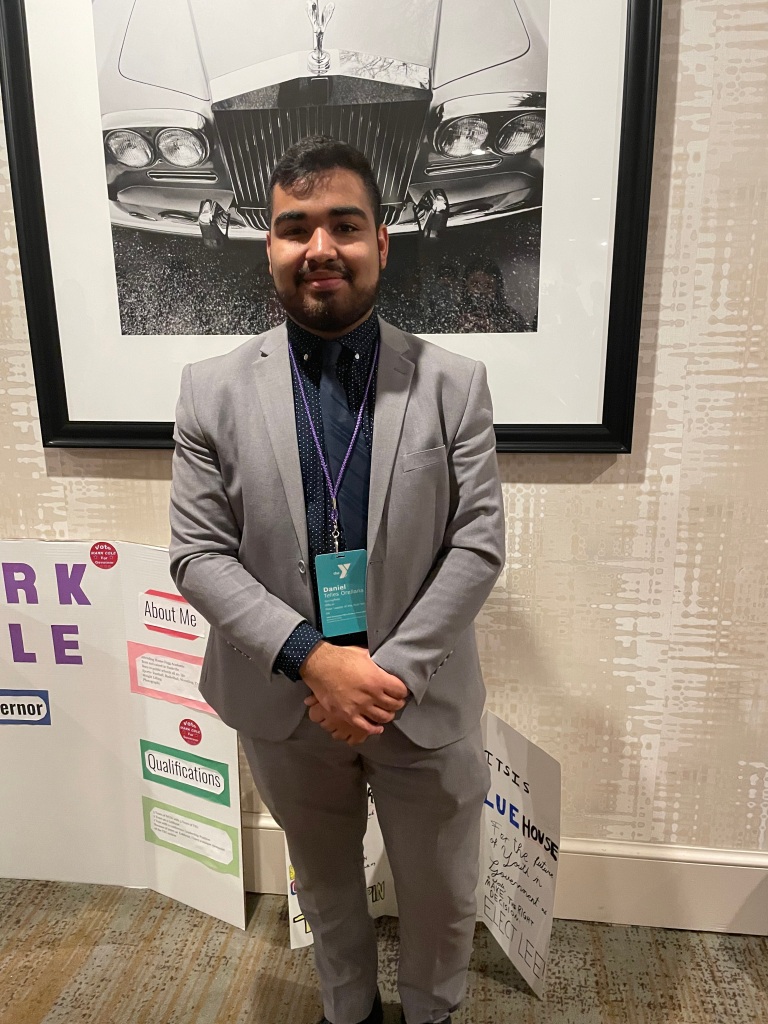Jeanna Keltch, McKenna Smythe, and Emma Wiggleton –

Daniel Telles Orellana, who is serving as this year’s Floor Leader of the Blue Senate, wrote a bill that he hopes to pass through both Blue Senate and Tennessee State legislature as he seeks to sign his bill into actual law.
Yesterday, BSB/22-4-11 was passed through Blue Senate, granting CCAPs such as YMCA, YWCA, SCC, and religious organizations after-hours use to public school facilities and playgrounds. This provides low-income communities with better access to safe and functional spaces for child care and after school programs. With the passage of this bill, participation in these enrichment programs is expected to increase by 50% and will benefit the new participants and their families by encouraging social and physical engagement within the community. Not only will this bill have a positive impact on students’ physical wellbeing, but it will also improve their academic and social performance as well, creating a better environment and having a positive influence on future generation.
Below is an interview by Managing Editor McKenna Smythe about Daniel’s bill, his background, and his motivations for writing it.
McKenna Smythe: What was your inspiration towards writing the bill?
Daniel Telles Orellana: One of my inspirations to writing this bill was the fact that knowing that there are a lot of students that could potentially go into one of these activities but cannot because there is a hinderance. Not because they don’t want to, not because it is something that doesn’t appeal to them.
MS: Where did you first see and witness this issues?
DTO: So coming from the hispanic community, extracurriculars were not very endorsed, and I always wondered why. It wasn’t until my freshman year that I encountered it thought, the whole motion that we can use our extracurriculars during the day, but for some reason, even though we can play on the monkey bars after lunch, we cannot play on the monkey bars once we come out of school. And it always struck me to see that this was something that was public, this was at everyone’s reach, but for some reason we cannot use it.
MS: It’s kind of wasteful to not utilize that.
DTO: Precisely. Yes.
MS: What process do you want it [the bill] to go through? Where is your progress standing on the bill?
DTO: So currently our progress is first getting the attention of people, making sure everyone is on track…it’s a pressing problem, and it’s a problem we need to fix. From there on out, we want to work closer not just with the YMCA, but also with local Tennessee officials in order to encourage the bill and the governmental aspect of things. I want to point out that I have recently met with Commissioner Carter. He was very interested in the bill, thank goodness, and we are hoping to see an increase in interest and really awareness of this problem in government.
MS: Could you just tell us a little bit about your YIG/MUN story?
DTO: Yes, so I am a senior at Springfield High School (Go Yellowjackets!). I got involved with the CCE as soon as freshman year, but it really didn’t take speed until sophomore year. I would like to appreciate and give a shoutout to Ms. Beth Stokes. Thank you for all that you do for Springfield, especially education programs, specifically the Rise Program. Thank you very much Ms. Stokes, we love you and appreciate you.
When I first encountered the CCE, it was through Model United Nations, and I was thrown aback on the first day to be honest. I come from a very small town, very dominated by Anglo-Americans. So when I saw the level of diversity and the level of camaraderie between people and the CCE in both Model United Nations and Youth in Government, I was shocked, but I was positively shocked by it. It seemed eccentric, it seemed fun, it seemed a place where you could be yourself without being judged by other people. And, also, in the grand scheme of things, it seemed as we were really advancing these causes, making sure that…the youth of Tennessee understand what are our problems as a planet, as a nation, and how we can advance these.
MS: Do you have any final comments that you want to add?
DTO: I would just really like to address everyone who has been here for their first time and is wondering whether it is worth it or not to continue in this program. I would just want them to look at the person beside them, the person who is sitting in their same chamber, the person who is probably making the jokes on the other side of the table whenever they go to lunch, the person that they are asking to speak on behalf of their bill, whether that’s in Senate or House, and to take a look at how you are relating to that person. That it’s not just someone on paper, it’s not just a political idea. These are human beings, and more importantly, these are human beings that are working with you to achieve a common goal, which is to make our state and our world a better place. So if that’s not motivation enough, I really don’t know what is.
Thank you Daniel for your willingness to be interviewed, your eloquent words, and your dedication to this state and the issues facing it. We wish you and your bill the best of luck as it moves forward!